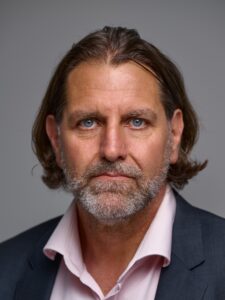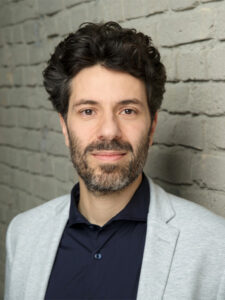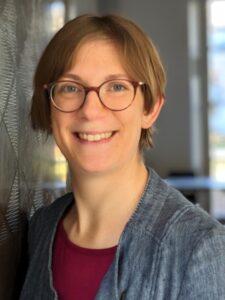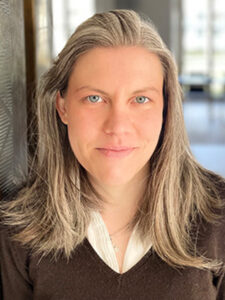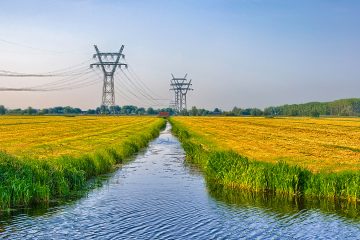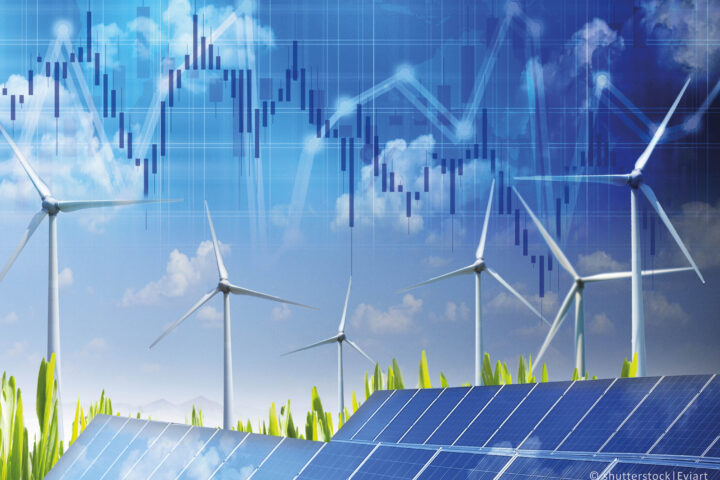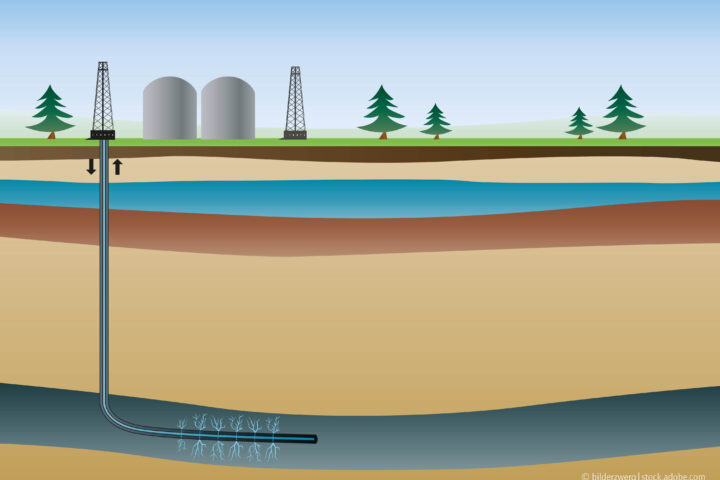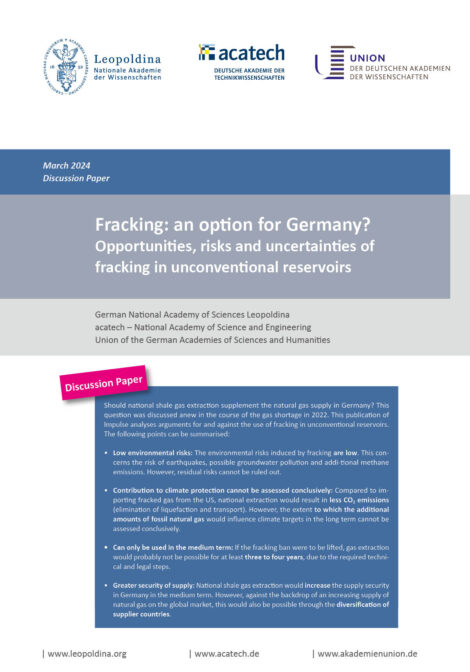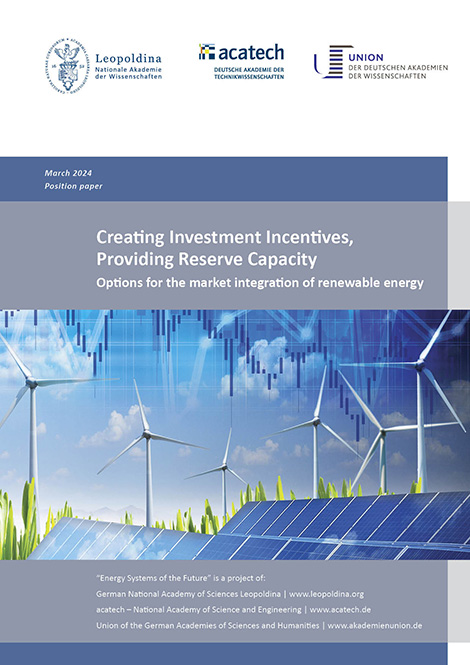Energy Systems of the Future (ESYS)
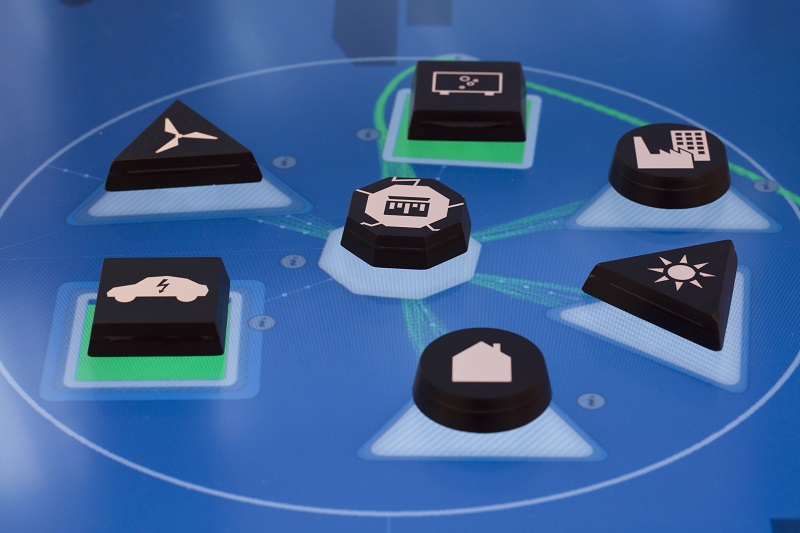
Foto: acatech/Esteve Franquesa 2016
Background and aims
The energy transition poses huge economic, technological and policy challenges for Germany. The “Energy Systems of the Future” (ESYS) initiative was launched by acatech, Leopoldina and the Union of the German Academies of Sciences and Humanities in 2013 in order to support this transformation of our energy supply. On completion of the project’s initial three-year phase, in 2016 acatech took over as the lead institution for the next stage of this joint project of the German academies of sciences. The project has been awarded funding by the Federal Ministry of Education and Research (BMBF) up to February 2022.
ESYS provides input for the debate on the challenges and opportunities of the German energy transition. More than 160 experts from science and research collaborate in interdisciplinary working groups to develop policy options for the implementation of a secure, affordable and sustainable energy supply. In order to ensure that different perspectives are included in the scientific analysis, the project members engage in a dialogue with actors from government, industry and civil society through a variety of discussion formats and technical meetings.
Structure
Project members drawn from the university, non-university and industrial research communities draft position papers that are subsequently approved by the Board of Trustees. The Board of Trustees is composed of representatives of the academies and the German scientific community and is responsible for determining the project’s strategic direction. Chaired by Andreas Löschel (Ruhr University Bochum), the eight-member Board of Directors manages the project work and represents ESYS externally. A project office supports the work of the Board of Trustees, Board of Directors and project members.

Members of the Board of Trustees
- Prof. Dr.-Ing. Jan Wörner
acatech – National Academy of Science and Egineering - Prof. (ETHZ) Dr. Gerald Haug
Leopoldina German National Academy of Science - Prof. Dr. Dr. h. c. mult. Christoph Markschies
Union of the German Academies of Sciences and Humanities - Prof. Dr.-Ing. Reiner Anderl
Academy of Sciences and Literature - Prof. Dr. Dr. h. c. Ursula Gather
Alfried Krupp von Bohlen und Halbach-Foundation - Prof. Dr. Veronika Grimm
University of Technology Nuremberg - Prof. Dr.-Ing. Jutta Hanson
Technical University of Darmstadt - Prof. Dr. Robert Schlögl
Alexander von Humboldt Foundation - Prof. Dr. Christoph M. Schmidt
RWI – Leibniz Institute for Economic Research - MinDirig’in Oda Keppler (Guest)
Federal Ministry of Education and Research (BMBF) - Undersecretary Dr.-Ing. Rodoula Tryfonidou (Guest)
Federal Ministry for Economic Affairs and Energy (BMWi)
Members of the Board of Directors
- Prof. Dr. Andreas Löschel
Ruhr University Bochum - Prof. Dr. Dirk Uwe Sauer
RWTH Aachen University - Prof. Dr. Karen Pittel
ifo Institute – Leibnitz Institute for Economic Research / LMU Munich - Prof. Dr. Hans-Martin Henning
Fraunhofer Institute for Solar Energy Systems ISE - Prof. Dr. Jürgen Renn
Max Planck Institute for the History of Science - Prof. Dr. Indra Spiecker genannt Döhmann
University of Cologne - Prof. Dr. Ellen Matthies
Otto-von-Guericke-University Magdeburg - Prof. Dr.-Ing. Manfred Fischedick
Wuppertal Institute for Climate, Environment and Energy
Working groups
The project members address specific energy-related questions in interdisciplinary working groups (WGs). Additional experts are brought in as required. Workshops, trialogues and technical discussions provide an opportunity for experts from academia to exchange information with actors from government, industry and civil society organisations.
Current working groups
Nuclear Fusion
Nuclear fusion which can contribute to a climate-neutral energy supply could be available in around two decades. It is a process in which light atoms fuse together, releasing energy – but no greenhouse gases. It is the aim of nuclear fusion research to control this process and utilize the energy.
However, the realization is complex and demanding. Among other things, special materials must be used due to very high temperatures of several million degrees Celsius developing during the reaction. In addition, the so-called plasma in which the atomic nuclei fuse can quickly become unstable under unfavorable conditions. That would stop the reaction.
A paper based on a workshop with experts illustrates where research into magnetic and laser fusion currently stands and when an implementation can be expected. The publication discusses not only the challenges but also the opportunities of fusion power plants and how they could be integrated into the energy system of the future.
Contact
- Sven Wurbs
Scientific Officer, Project ESYS - Cyril Stephanos
Head of Project Office, Project ESYS
Energy Transition of the Built Environment
The heat supply of buildings plays a crucial role in the attempt to achieve climate neutrality by 2045. However, previous efforts regarding the German „Wärmewende” („heat transition“) have hardly led to a reduction of emissions in the building sector in recent years. Since the necessary technical measures directly affect people’s lives, the success of the heat transition also depends significantly on finding convincing answers to pressing social issues.
The ESYS working group „Energy Transition of the Built Environment“ develops policy options for a technically feasible, socially acceptable and economically efficient heat transition in Germany. How can knowledge and communication measures on the heat transition be improved? Which kinds of social hurdles exist – and how can they be dealt with? What should be done with worst performing buildings, i.e. those with worst energy efficiency standards? And how can this transformation be designed in a socially acceptable way? These and other questions are the focus of the interdisciplinary working group.
Working group chair
- Prof. Dr. Melanie Jaeger-Erben
Brandenburg University of Technology - Prof. Dipl.-Ing. Andreas Wagner
Karlsruhe Institute of Technology (KIT)
Completed Working Groups
Carbon Management
Despite ambitious measures to avoid greenhouse gases, there will still be residual emissions in the long term – as climate scenarios show. In order to achieve climate neutrality and even net-negative emissions in the future, carbon management is required. Its components Carbon Capture & Storage (CCS), Carbon Capture & Utilization (CCU) and Carbon Dioxide Removal (CDR; negative emissions) partly require the same infrastructures and overlap in their contribution to climate protection. An overarching strategy is therefore required.
On the occasion of the Federal Government’s plans to publish a Carbon Management Strategy and a Long-Term Strategy for Negative Emissions in 2024, an interdisciplinary working group is examining the requirements for such an overarching strategy.
In the publication, the experts will contextualize the key points of the Carbon Management Strategy, point out areas of improvement and address questions such as these: What role do negative emissions, CCU and CCS play in comprehensive carbon management? How can the processes complement each other in a meaningful way so that climate protection targets can be reached?
Contact
- Prof. Dr.-Ing. Manfred Fischedick
Wuppertal Institute for Climate, Environment and Energy
Electricity Market of the Future
The expansion of renewable energies in line with the energy transition in Germany and the EU is shaping a new dynamic on the electricity markets. Instead of being able to plan with long-term forecasts and large power plants, electricity markets will have to reflect short-term changes due to fluctuating renewable energy sources, many small market participants and flexible use patterns in the future. The planned phase-out of nuclear and coal-fired power plants reinforces this dynamic. The ESYS working group „Electricity Market of the Future“ is investigating how the market design could be improved to guarantee a cost-effective and secure supply in the long term. Among other things, the working group deals with the following questions: How can renewable energy plants best be subsidized financially, or will subsidies even become obsolete as a result of a high CO2 price? Can power plants and storage facilities, which are crucial for security of supply, be refinanced in the existing system? How can electricity markets become more flexible without threatening security of supply and cost efficiency?
Working group chair
- Prof. Dr. iur. Jürgen Kühling, LL.M
University of Regensburg - Prof. Dr. Justus Haucap
Heinrich Heine University Düsseldorf
Integrated Energy System
Climate policy targets have been tightened in Germany and Europe, a global hydrogen economy is emerging, and potentials for removing CO2 from the atmosphere (negative emissions) are to be explored: How do these developments affect the energy transition? The working group „Integrated Energy System“ examines potential paths to climate neutrality before 2050 under these changing conditions. Based on a comparison of current energy scenarios and its own model calculations, the working group creates an overview of different pathways to climate neutrality and shows the influence of important technical and economic parameters and social preferences on the future energy supply. Which greenhouse gas reduction paths are required for the different sectors in order to achieve the German and European climate targets? Which technologies and infrastructures must be available by when? What role do changes in consumption behaviour or energy efficiency play? Which political and regulatory measures are needed by when to achieve this transformation?
Working group chair
- Prof. Dr. Anke Weidlich
University of Freiburg - Prof. Dr. Mario Ragwitz
Fraunhofer IEG Institution for Energy Infrastructures and Geothermal Systems
Hydrogen Economy 2030
Hydrogen is considered a key element in the energy transition for sector coupling: it provides the opportunity of replacing fossil fuels in sectors where the direct use of renewable electricity is not viable. For instance in the chemical and steel industries as well as aviation, shipping and heavy duty transport. The necessary quantities will probably not be produced domestically. Hydrogen imports could help close this gap between demand and production. The ESYS working group „Hydrogen Economy 2030“ is developing options for action for the market ramp-up for 2030, identifying advantages and disadvantages of the various options as well as research needs. The work focuses on topics such as availability, transport vectors, infrastructures, applications and certification. Which import volumes are feasible by 2030? Can existing infrastructures be re-used or are new ones to be created? How can the regulatory framework be designed so that economic business models can develop? Among other things, the working group will explore these questions.
Working group chair
- Prof. Dr. Frithjof Staiß
Centre for Solar Energy and Hydrogen Research Baden-Württemberg (ZSW)
CEO and Head of Energy Policy and Energy Carriers Division
Energy prices and security of supply
The Russian attack on the Ukraine and the resulting geopolitical upheavals are fundamentally changing the conditions for Germany’s and Europe’s energy supply. How could the demand for natural gas be met if Western states impose an embargo or Russia stops deliveries? How will energy prices develop in the coming years? And which choices do Germany and Europe have to ensure a secure and affordable energy supply for industry and private households? Based on two studies, the working group looks at the economic and grid-related effects of interrupted gas supplies from Russia in a time horizon up to 2030 and derives options for action for German and European energy policy.
Working group chair
- Prof. Dr. Dirk Uwe Sauer
RWTH Aachen University - Prof. Dr. Karen Pittel
ifo Institute – Leibnitz Institute for Economic Research / LMU Munich
Development of photovoltaics and wind energy
Photovoltaics and wind energy have made enormous technological progress in recent years and decades: The generated electricity is becoming cheaper and cheaper. The growth potential is large. However, the development is faltering and falling short on meeting the targets of the Paris Agreement. If Germany wants to achieve its national and European climate targets, the growth rate needs to accelerate. The urgency increases in the light of the growing demand for electricity and the new EU climate targets. The working group “development of photovoltaics and wind energy“ identifies barriers for the expansion of these energy sources and develops options to overcome them. The legal and economic framework, the planning and approval processes as well as questions of social acceptance and feasibility are being considered.
Working group chairs
- Prof. Dr. Andreas Bett
Fraunhofer Institute for Solar Energy Systems
Director - Prof. Dr. Ellen Matthies
Otto-von-Guericke-University Magdeburg
Chair of Environmental Psychology
Resilience of digitalized energy systems
Without information and communication technologies, energy supply has become inconceivable. They enable the flow of information between energy providers, consumers, transformer stations and other subsystems, monitor the grid and sound the alarm in the event of problems. At the same time, digitalization involves risks such as manipulation, cyber attacks and defective applications. Energy supply is a critical infrastructure (KRITIS). A blackout would therefore have far-reaching consequences for society. The claim is: Digital energy infrastructures must be both secure and safeguarding. This means that they must be able to defend themselves against attacks and failures and at the same time keep the entire system functional. What opportunities and what challenges however could arise? Who are the main players and what is their responsibility? What needs to be done at regulatory level and in practice? The ESYS working group “Resilience of Digitalized Energy Systems” develops scientific based policy options to deal with these questions.
Working group chairs
- Dr. Christoph Mayer
OFFIS – Institute for Information Technology
Energy Division
Director - Prof. Dr. Gert Brunekreeft
Jacobs University Bremen
Professor for Energy Economics
Electricity market design
The regulatory issues in the electricity market today are different from the issues that characterised the liberalisation phase at the turn of the millennium and strongly influenced the German energy market’s current design. Consequently, this market design now needs to be adapted to the new conditions. In view of the likely future challenges, it is necessary to fundamentally rethink the market design’s ongoing development in the light of past experience. An optimised market design can deliver climate protection targets more efficiently and effectively, improve the integration of renewable energy and contribute to security of supply. The working group is formulating proposals and identifying policy options for restructuring the electricity market in order to enable decarbonisation of the energy system by the 2030 deadline. To this end, it is examining the European emissions trading scheme, the promotion of renewable energy and the interactions between the electricity industry and the transport and heating sectors.
Working group chairs
- Prof. Dr. Felix Müsgens
Brandenburg University of Technology Cottbus-Senftenberg, Faculty of Mechanical Engineering, Electrical and Energy Systems, Chais for Energy Economics, Chairholder - Prof. Dr. Hartmut Weyer
Clausthal University of Technology, Institute of German and International Mining and Energy Law, Director
Centralised vs. decentralised power supply
As a result of the growth in renewable energy, electricity is now produced in smaller generating units as well as in large power plants. More and more private individuals, companies and municipalities are feeding power into the grid from their own wind or photovoltaic installations. While many people regard this development as an opportunity to play an active part in the energy transition, it remains unclear how the trend towards a decentralised energy supply will affect the overall system. Will a viable new system architecture emerge, or will the energy system become fragmented, resulting in more and more problems? The Working Group aims to demonstrate how centralised and decentralised components can be integrated to create a stable supply system. To this end, it is investigating the technical options, the regulatory framework and the economic, social and policy issues.
Working group chairs
- Prof. Dr. Peter Dabrock
Friedrich-Alexander-Universität Erlangen-Nürnberg, Department of Theology
Chair of Systematic Theology II (Ethics), Chairholder - Prof. Dr.-Ing. Jutta Hanson
Technische Universität Darmstadt, Institute for Electric Power Systems
Department of Electrical Power Systems with Integration of Renewable Energies, Head - Prof. Dr. Christoph Weber
Universität Duisburg-Essen, Faculty of Business Administration and Economics
Chair for Managment Science and Energy Economics, Chairholder
Governance for a European Energy Union
The 2030 Agenda for Sustainable Development and the Paris Climate Agreement establish the goals of limiting global warming to well below 2°C and achieving global greenhouse gas neutrality by the second half of the century. In order to meet this challenge, it will be necessary to reorganise Europe’s energy supply into a common European system. The Working Group is studying the regulatory, policy and economic framework of European energy policy, particularly in terms of existing barriers to the establishment of a European energy union. Based on its findings, it is developing governance guidelines for a sustainable, secure and affordable energy union geared towards achieving complete carbon neutrality. The Working Group aims to identify the best way of managing this process, as well as how to distribute the relevant tasks fairly and efficiently among the EU’s members and how to involve civil society and the private sector.
Working group chairs
- Prof. Dr. Sabine Schlacke
WWU University of Münster, Faculty of Law, Institute for Environmental and Planning Law
Managing Director - Prof. Dr. Michèle Knodt
Technische Universität Darmstadt, Department of History and Social Sciences
Institute for Political Science, Jean Monnet Professor - Prof. Dr. Christoph Böhringer
Carl von Ossietzky University of Oldenburg, Department of Economics
Chair of Economic Policy, Chairholder
Bioenergy
Bioenergy has several advantages. Being easy to store, it can compensate for fluctuations in wind and solar power and can also generate heat. As well as being used to produce fuel, biomass can be combined with CCS technology to remove greenhouse gases from the atmosphere. Climate models suggest that this will be necessary within the next few decades. However, there are also a number of drawbacks. Unless sustainability criteria are enforced, the cultivation of energy crops will produce greenhouse gases, have a negative impact on biodiversity and soil quality, and cause water pollution. The Working Group aims to identify the best options for the sustainable, climate-friendly use of bioenergy as part of our energy supply.
Working group chairs
- Prof. Dr.-Ing. Daniela Thrän
Helmholtz Centre for Environmental Research – UFZ
Department of Bioenergy, Head
Deutsches Biomasseforschungszentrum DBFZ - Prof. Dr. Gernot Klepper
Kiel Institute for the World Economy (ifw), Research Area “The Environment and Natural Resources”, Sustainable Land Use, Team Leader
Coupling different energy
If the goal of reducing carbon emissions by 80 to 95 percent is to be met, switching electricity generation to renewable sources will not be enough on its own – it will also be necessary to ensure more climate-friendly energy production for the heating and transport sectors. This will require technologies such as Power-to-X, which uses electricity to produce heat, synthetic gas and fuels. It will also be necessary to adapt the markets, regulatory framework and infrastructure. Chaired by Eberhard Umbach, this Working Group analyses development paths for closer coupling of the electricity, heating and transport sectors.
Working group chairs
- Prof. Dr. Eberhard Umbach
Karlsruhe Institute of Technology (KIT), former President - Prof. Dr. Hans-Martin Henning
Fraunhofer Institute for Solar Energy Systems ISE, Director
Path dependencies in the transport sector
The decisions we take today will have a major influence on the development of our future energy system. In the transport sector, for example, although the existing service station network could also sell biofuels and synthetic petrol, electric cars and fuel cell vehicles will need a completely new infrastructure to supply them with electricity or hydrogen. A system geared towards just one of these technologies would create path dependencies that could be difficult to overcome at a later date. Against this backdrop, the Working Group is drafting a position paper that will outline strategies for tackling these difficult decisions in order to help the relevant actors to address path dependencies and shape the future of the transport sector.
Working group chairs
- Prof. Dr.-Ing. Manfred Fischedick
Wuppertal Institute for Climate, Environment and Energy, Vice-President - Prof. Dr. Armin Grunwald
Karlsruhe Institute of Technology (KIT)
Institute for Technology Assessment and Systems Analysis (ITAS), Head
Risk and resilience
A collapse of the energy supply system would threaten both the economy and society as a whole. The energy system should therefore be as robust as possible, ideally even “learning” from disruption so that it is better prepared to cope with future incidents. How can we ensure a secure energy supply even when several unforeseen events occur simultaneously? And how does the energy transition affect the robustness of the system? A study produced by the Working Group describes a number of illustrative “threat scenarios”. The resulting position paper contains measures for a resilient energy system of the future.
Working group chairs
- Prof. Dr. Ortwin Renn
Institute for Advanced Sustainability Studies (IASS), Scientific Director
Consumer policy
It will not be possible to achieve an overall reduction in energy consumption unless private consumers start using less energy. However, high electricity bills very rarely induce people to actively change their energy consumption patterns. Drawing on findings from the field of behavioural science, this Working Group has studied a range of issues including the incentives that could be successfully deployed to encourage private households to save energy.
Working group chair
- Prof. Dr. Ortwin Renn
Institute for Advanced Sustainability Studies (IASS), Scientific Director
Resources
The energy transition is affecting demand for raw materials. With coal, oil and gas consumption expected to fall in the long term, bioenergy can help to offset the fluctuating supply of wind and solar power. However, the expansion of our renewable energy plants, storage systems and grids is causing a rise in demand for metals. This Working Group studied ways of reducing Germany’s dependence on raw material imports, along with measures to help secure our long-term energy supply.
Working group chairs
- Prof. Dr. Peter Herzig
GEOMAR Helmholtz Centre for Ocean Research Kiel, Executive Director - Prof. Dr.-Ing. Friedrich-Wilhelm Wellmer
Federal Institute for Geosciences and Natural Resources (BGR), former President
Energy scenarios
Since energy scenarios frequently inform policymaking, it is particularly important that their results should be transparent and verifiable. However, many of the organisations tasked with producing energy scenarios do not disclose their simulation models. Moreover, it can sometimes be hard to determine whether conditions stipulated by the commissioning organisation have affected the results. In order to promote greater transparency, this Working Group developed a series of guidelines for working with energy scenarios.
Working group chairs
- Prof. Dr. Armin Grunwald
Karlsruhe Institute of Technology (KIT)
Institute for Technology Assessment and Systems Analysis (ITAS), Head
Flexibility concepts
The power generated by wind and photovoltaic plants fluctuates depending on the weather. In order to compensate for these fluctuations, it is necessary to develop technologies that support flexibility – we need flexible dispatchable power plants, storage systems, and demand-side management that achieves a balance between supply and demand. The challenge is to identify technologies that combine stability with sustainability, cost-effectiveness and social acceptability. This Working Group compared around 130 system configurations using its own simulation model.
Working group chairs
- Prof. Dr.-Ing. Peter Elsner
Fraunhofer Institute for Chemical Technology ICT, Institute Director - Prof. Dr. Dirk Uwe Sauer
RWTH Aachen University, Institute for Power Electronics and Electrical Drives (ISEA)
Chair for Electrochemical Energy Conversion and Storage Systems, Chairholder - Prof. Dr.-Ing. Manfred Fischedick
Wuppertal Institute for Climate, Environment and Energy, Vice-President
Incorporating the German Energiewende into a comprehensive European approach
In order to mitigate global warming, it is vital that as many countries as possible should make their energy supply systems more sustainable. Closer coordination of Germany’s energy transition measures and European energy and climate policy can contribute to this goal. This Working Group identified the requirements for an internationally compatible European model, focusing in particular on the European emissions trading system, the promotion of renewable energy and the EU’s internal electricity market.
Working group chairs
- Prof. Dr. Christoph M. Schmidt
RWI – Leibniz-Institute for Economic Research, President
Publications
ESYS publishes the results of all its projects. The position papers contain policy options for the transformation of the energy system and are published as part of the joint academy project’s Series on Science-Based Policy Advice”. Additional analyses and materials are published in the project’s own “Energy Systems of the Future” series.
All publications are available on the ESYS project web site and at the bottom of this page.
ESYS in dialogue
ESYS facilitates a dialogue between the different energy transition stakeholders through a variety of discussion formats. The project members engage with actors from government, industry and civil society so that they can feed their respective views into the scientific analysis.
Energie.System.Wende.
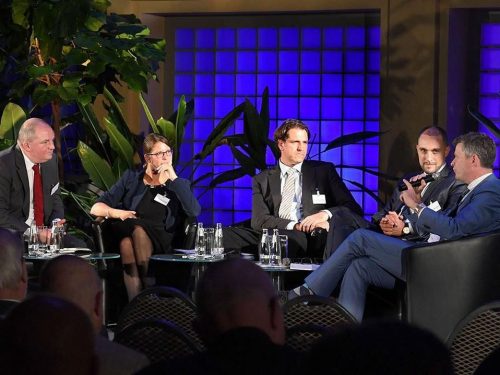 Every year, the joint academy project ESYS holds its annual conference Energie.System.Wende. (Energy.System.Transition, link to German web site) in Berlin. Panel discussions and workshops provide an opportunity to present the project’s ideas and results and discuss them with interested parties from different industries and disciplines.
Every year, the joint academy project ESYS holds its annual conference Energie.System.Wende. (Energy.System.Transition, link to German web site) in Berlin. Panel discussions and workshops provide an opportunity to present the project’s ideas and results and discuss them with interested parties from different industries and disciplines.
Expert discussions
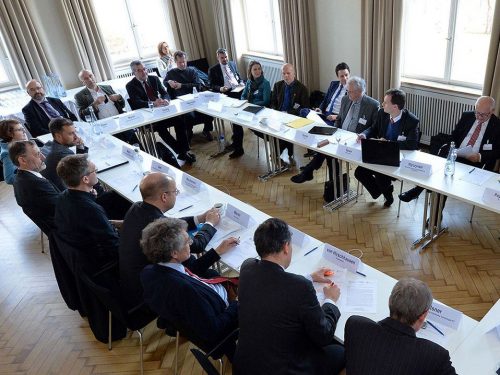 The ESYS Working Groups organise workshops and expert discussions (link to German web site) in order to draw on the practical expertise of energy policy actors. The WGs invite between 10 and 15 experts from academia, government, industry and civil society organisations to discuss their interim results.
The ESYS Working Groups organise workshops and expert discussions (link to German web site) in order to draw on the practical expertise of energy policy actors. The WGs invite between 10 and 15 experts from academia, government, industry and civil society organisations to discuss their interim results. ESYS conference
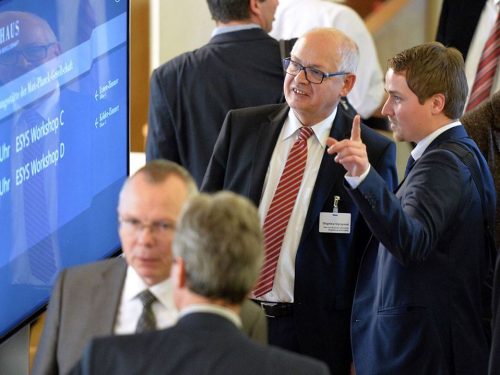 Approximately once a year, the project members come together at the Harnack House in Berlin for the ESYS conference (link to German web site), where they discuss the ongoing development of the project’s themes and priorities. The current working groups also present their interim results to the conference.
Approximately once a year, the project members come together at the Harnack House in Berlin for the ESYS conference (link to German web site), where they discuss the ongoing development of the project’s themes and priorities. The current working groups also present their interim results to the conference. Further information
Website Energy Systems of the Future
Leopoldina – Nationale Akademie der Wissenschaften
Union der deutschen Akademien der Wissenschaften
HUMBOLDT-VIADRINA Governance Platform: Trialogs on the energy transition


